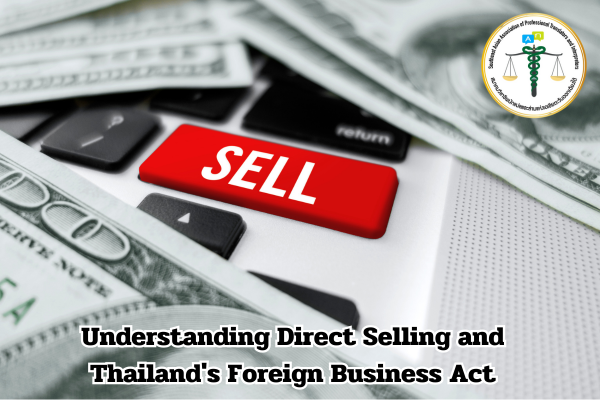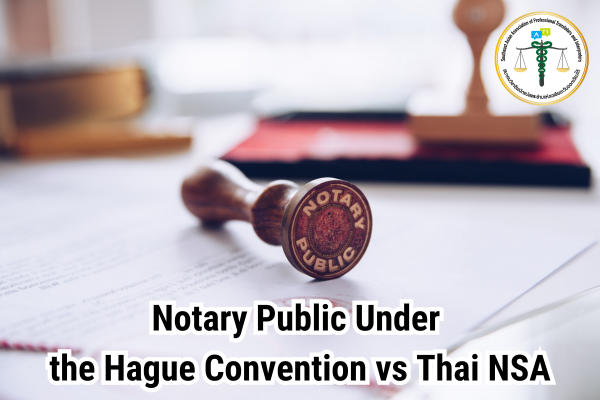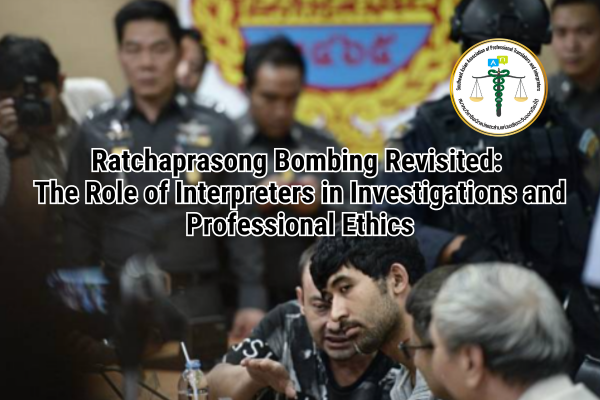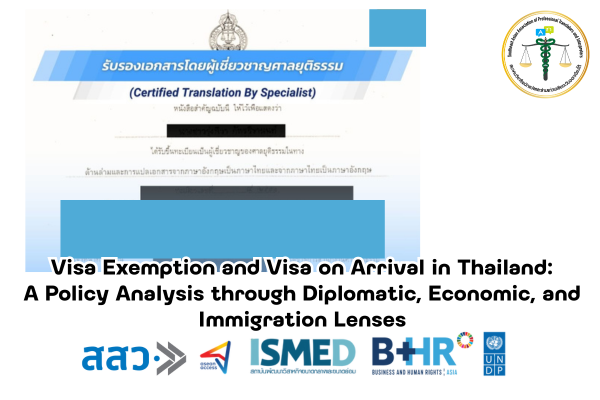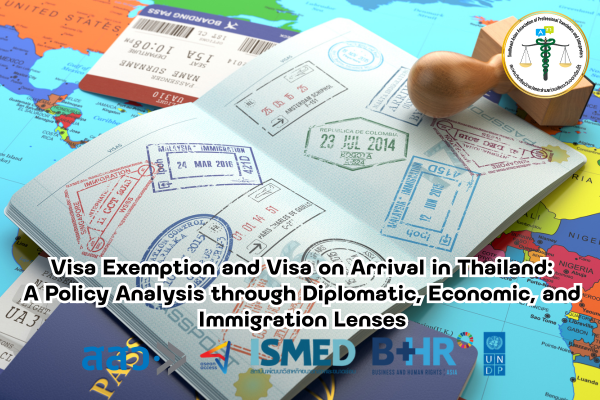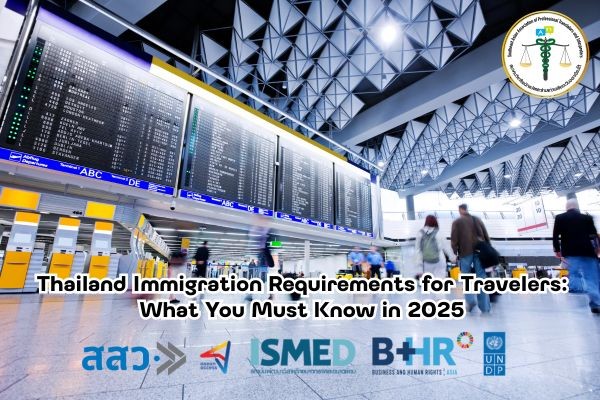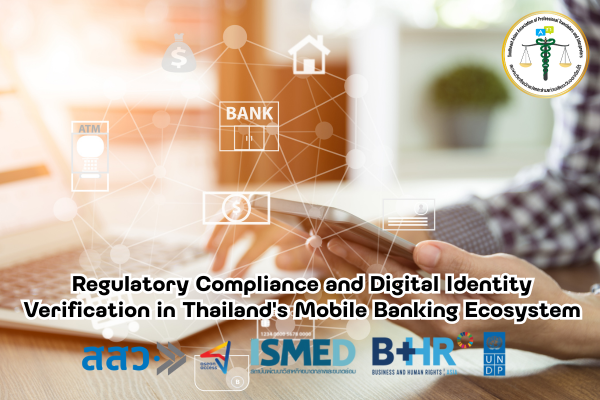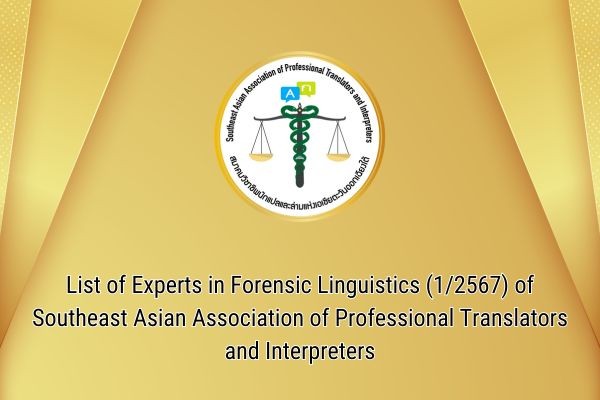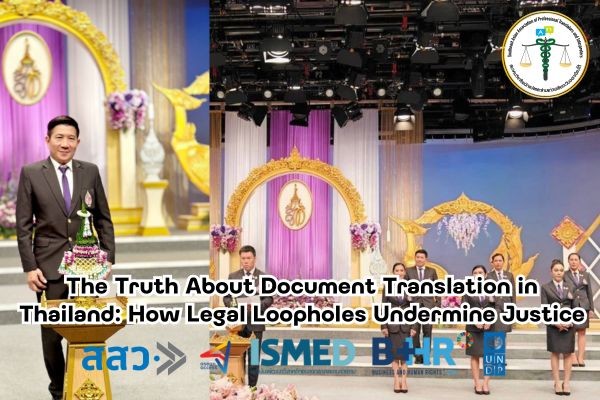Direct Selling Under the Foreign Business Act
Introduction
17 January 2025, Bangkok – Direct selling and direct marketing are significant business models in Thailand’s economy, especially in recent years. These business practices often involve selling or marketing products and services directly to consumers at their homes or workplaces. In Thailand, direct selling and marketing are regulated under the Direct Sales and Marketing Act of B.E. 2545 (2002), which provides clear definitions:
“Direct sales” refers to marketing goods or services directly to consumers at their homes or workplaces, or other locations that are not ordinary business premises, through direct sales representatives or independent distributors in a uni-level or multi-level structure—excluding transactions specified in ministerial regulations.
“Direct marketing” refers to marketing goods or services by communicating directly with consumers at a distance, expecting them to respond and purchase the goods or services from the direct marketing operator.
Legal Restrictions under the Foreign Business Act
One interesting legal issue is whether direct sales and direct marketing are restricted for foreign investors under the Foreign Business Act of 1999. In December 2006, the Department of Business Development (DBD) issued an advisory opinion addressing two key questions:
- Are foreigners allowed to engage in direct sales and direct marketing according to the Foreign Business Act?
- Are foreigners who operate businesses with a minimum capitalization of 100 million baht allowed to engage in direct sales and direct marketing according to the Foreign Business Act?
According to the DBD, direct sales are considered “retail” under Section (14) of List Three of the Foreign Business Act and a “service” business under Section (21). Both of these activities are restricted for foreigners. Similarly, direct marketing is classified as a service business under Section (21). Therefore, foreigners must apply for permission from the Director-General of the Department of Business Development. The application will be reviewed by the Foreign Business Committee under Section 5 of the Foreign Business Act. Generally, this involves assessing the potential benefits and drawbacks for the Thai economy and society of allowing foreign business operations.
However, according to Section (14), the restriction on retail businesses applies only to those with a minimum capital of less than 100 million baht. Hence, foreigners who invest at least 100 million baht can engage in direct sales without needing prior approval.
The Role of Certified Translators, Translation Certifiers, and Interpreters from SEAProTI
Operating direct sales and direct marketing businesses in Thailand involves a significant amount of legal documentation, as well as communication with government agencies and local business partners. Certified translators, translation certifiers, and interpreters from the Southeast Asian Professional Translators and Interpreters Association (SEAProTI) play a vital role in these processes:
-
Legal Document Translation
Submitting business applications under the Foreign Business Act requires documentation to be translated into both Thai and English. Certified translators and translation certifiers ensure the accuracy and completeness of these translations. -
Support for Cross-border Communication
Business negotiations, meetings with government agencies, and internal corporate discussions between foreigners and Thai parties require precise translations. Certified interpreters play a crucial role in facilitating smooth communication. -
Guidance on Documentation and Regulations
In complex cases, documentation related to direct sales and direct marketing may be intricate. Translators and specialists ensure that documents comply with Thai laws and regulations.
Conclusion
Direct sales and direct marketing represent significant opportunities for foreign investors in Thailand. However, the legal restrictions and complex application processes require a thorough understanding. Utilizing certified translators, translation certifiers, and interpreters ensures efficient business operations while minimizing legal risks.
About SEAProTI’s certified translators, translation certification providers, and certified interpreters:
The Southeast Asian Association of Professional Translators and Interpreters (SEAProTI) has officially announced the criteria and qualifications for individuals to register as “Certified Translators,” “Translation Certification Providers,” and “Certified Interpreters” under the association’s regulations. These guidelines are detailed in Sections 9 and 10 of the Royal Thai Government Gazette, issued by the Secretariat of the Cabinet under the Office of the Prime Minister of the Kingdom of Thailand, dated July 25, 2024, Volume 141, Part 66 Ng, Page 100.
To read the full publication, visit: the Royal Thai Government Gazette
การขายตรงตามพระราชบัญญัติการประกอบธุรกิจของคนต่างด้าว
บทนำเรื่อง
17 มกราคม 2568, กรุงเทพมหานคร – การขายตรงและการตลาดทางตรงถือเป็นรูปแบบธุรกิจที่มีความสำคัญในระบบเศรษฐกิจของประเทศไทย โดยเฉพาะในช่วงหลายปีที่ผ่านมา รูปแบบธุรกิจนี้มักเกี่ยวข้องกับการขายหรือทำการตลาดสินค้าหรือบริการโดยตัวแทนจำหน่ายอิสระถึงผู้บริโภคโดยตรงที่บ้านหรือสถานที่ทำงานของผู้บริโภคเอง ในบริบทของประเทศไทย ธุรกิจการขายตรงและการตลาดทางตรงได้รับการกำกับดูแลตามพระราชบัญญัติการขายตรงและการตลาดทางตรง พ.ศ. 2545 ซึ่งให้คำจำกัดความเกี่ยวกับรูปแบบธุรกิจดังกล่าวไว้อย่างชัดเจน
“การขายตรง” หมายถึง การทำการตลาดสินค้าและบริการที่ส่งตรงถึงผู้บริโภค ณ บ้านหรือที่ทำงานของผู้บริโภค หรือสถานที่อื่นที่ไม่ใช่สถานที่ประกอบธุรกิจปกติ โดยผ่านตัวแทนการขายตรงหรือตัวแทนอิสระแบบชั้นเดียวหรือหลายชั้น ทั้งนี้ไม่รวมถึงธุรกรรมที่กำหนดไว้ในกฎกระทรวง
“การตลาดทางตรง” หมายถึง การทำการตลาดสินค้าและบริการในลักษณะที่ให้ข้อมูลโดยตรงแก่ผู้บริโภคในระยะไกล โดยคาดหวังว่าผู้บริโภคจะตอบสนองและซื้อสินค้าหรือบริการจากผู้ดำเนินการตลาดทางตรง
ข้อจำกัดทางกฎหมายภายใต้พระราชบัญญัติการประกอบธุรกิจของคนต่างด้าว
หนึ่งในประเด็นทางกฎหมายที่น่าสนใจเกี่ยวกับธุรกิจขายตรงและการตลาดทางตรงคือ ข้อจำกัดการลงทุนของชาวต่างชาติตามพระราชบัญญัติการประกอบธุรกิจของคนต่างด้าว พ.ศ. 2542 กรมพัฒนาธุรกิจการค้า (DBD) ได้ออกคำแนะนำทางกฎหมายในเดือนธันวาคม พ.ศ. 2549 ซึ่งได้พิจารณาประเด็นสำคัญสองประการ ได้แก่
- ชาวต่างชาติสามารถดำเนินธุรกิจขายตรงและการตลาดทางตรงตามเงื่อนไขของพระราชบัญญัติการประกอบธุรกิจของคนต่างด้าวได้หรือไม่
- หากชาวต่างชาติที่ดำเนินธุรกิจโดยใช้ทุนจดทะเบียนขั้นต่ำ 100 ล้านบาท จะสามารถดำเนินธุรกิจขายตรงและการตลาดทางตรงได้หรือไม่
จากคำวินิจฉัยของกรมพัฒนาธุรกิจการค้า ธุรกิจขายตรงถูกจัดว่าเป็น “ธุรกิจค้าปลีก” ตามหมวด (14) ของบัญชีสามในพระราชบัญญัติการประกอบธุรกิจของคนต่างด้าว รวมทั้งเป็น “ธุรกิจบริการ” ตามหมวด (21) ของบัญชีเดียวกัน ซึ่งธุรกิจทั้งสองประเภทนี้ถูกจำกัดสำหรับชาวต่างชาติ สำหรับธุรกิจการตลาดทางตรง ถือเป็นธุรกิจบริการตามหมวด (21) เช่นกัน
ดังนั้น ชาวต่างชาติที่ประสงค์จะดำเนินธุรกิจขายตรงหรือการตลาดทางตรงในประเทศไทยต้องยื่นขออนุญาตจากอธิบดีกรมพัฒนาธุรกิจการค้า โดยคำขอจะต้องผ่านการพิจารณาจากคณะกรรมการการประกอบธุรกิจของคนต่างด้าวตามมาตรา 5 ของพระราชบัญญัติการประกอบธุรกิจของคนต่างด้าว โดยทั่วไป การพิจารณาดังกล่าวจะต้องคำนึงถึงผลกระทบทั้งในเชิงบวกและลบต่อเศรษฐกิจและสังคมไทย
อย่างไรก็ตาม ตามเงื่อนไขในหมวด (14) การจำกัดเกี่ยวกับธุรกิจค้าปลีกจะมีผลเฉพาะกรณีที่ทุนจดทะเบียนของธุรกิจน้อยกว่า 100 ล้านบาท ซึ่งหมายความว่า หากชาวต่างชาติที่ดำเนินธุรกิจขายตรงโดยใช้ทุนจดทะเบียนอย่างน้อย 100 ล้านบาท จะสามารถดำเนินธุรกิจได้โดยไม่ต้องยื่นขออนุญาต
บทบาทของนักแปลรับรอง ผู้รับรองการแปล และล่ามรับรองในกระบวนการดังกล่าว
การดำเนินธุรกิจขายตรงและการตลาดทางตรงในประเทศไทยเกี่ยวข้องกับการจัดเตรียมเอกสารทางกฎหมายจำนวนมาก รวมถึงการติดต่อสื่อสารกับหน่วยงานรัฐและคู่ค้าทางธุรกิจในประเทศ นักแปลรับรอง ผู้รับรองการแปล และล่ามรับรองจากสมาคมวิชาชีพนักแปลและล่ามแห่งเอเชียตะวันออกเฉียงใต้ (SEAProTI) มีบทบาทสำคัญในกระบวนการเหล่านี้ ดังนี้
-
การแปลเอกสารทางกฎหมาย
การยื่นขออนุญาตประกอบธุรกิจตามพระราชบัญญัติการประกอบธุรกิจของคนต่างด้าวต้องการเอกสารที่แปลเป็นภาษาไทยและภาษาอังกฤษตามที่กำหนด นักแปลรับรองและผู้รับรองการแปลทำหน้าที่สำคัญในการตรวจสอบความถูกต้องและครบถ้วนของเนื้อหา -
การสนับสนุนการติดต่อสื่อสารระหว่างประเทศ
การเจรจาทางธุรกิจ การประชุมกับหน่วยงานรัฐ และการประชุมภายในองค์กรระหว่างชาวต่างชาติและคนไทยจำเป็นต้องมีการแปลภาษาที่ถูกต้อง นักล่ามรับรองสามารถช่วยให้การสื่อสารเป็นไปอย่างราบรื่น -
การให้คำปรึกษาเกี่ยวกับเอกสารและกฎระเบียบ
ในบางกรณี เอกสารที่เกี่ยวข้องกับธุรกิจขายตรงและการตลาดทางตรงอาจมีเนื้อหาที่ซับซ้อน นักแปลและผู้เชี่ยวชาญด้านการแปลสามารถให้คำแนะนำเกี่ยวกับการจัดเตรียมเอกสารให้สอดคล้องกับกฎหมายไทย
สรุป
ธุรกิจขายตรงและการตลาดทางตรงเป็นโอกาสที่ดีสำหรับนักลงทุนต่างชาติในประเทศไทย อย่างไรก็ตาม ข้อจำกัดทางกฎหมายและกระบวนการอนุญาตที่ซับซ้อนทำให้การดำเนินธุรกิจในด้านนี้ต้องการความเข้าใจในเชิงลึก การใช้บริการนักแปลรับรอง ผู้รับรองการแปล และล่ามรับรองจะช่วยให้กระบวนการดำเนินธุรกิจดังกล่าวมีประสิทธิภาพและลดความเสี่ยงจากความผิดพลาดทางกฎหมาย
เกี่ยวกับนักแปลรับรอง ผู้รับรองการแปล และล่ามรับรองของสมาคมวิชาชีพนักแปลและล่ามแห่งเอเชียตะวันออกเฉียงใต้
สมาคมวิชาชีพนักแปลและล่ามแห่งเอเชียตะวันออกเฉียงใต้ (SEAProTI) ได้ประกาศหลักเกณฑ์และคุณสมบัติผู้ที่ขึ้นทะเบียนเป็น “นักแปลรับรอง (Certified Translators) และผู้รับรองการแปล (Translation Certification Providers) และล่ามรับรอง (Certified Interpreters)” ของสมาคม หมวดที่ 9 และหมวดที่ 10 ในราชกิจจานุเบกษา ของสำนักเลขาธิการคณะรัฐมนตรี ในสำนักนายกรัฐมนตรี แห่งราชอาณาจักรไทย ลงวันที่ 25 ก.ค. 2567 เล่มที่ 141 ตอนที่ 66 ง หน้า 100 อ่านฉบับเต็มได้ที่: นักแปลรับรอง ผู้รับรองการแปล และล่ามรับรอง


